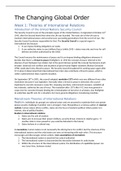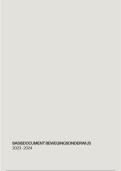College aantekeningen
Coursera The Changing Global Order
- Instelling
- The Changing Global Order
I've made notes of every single video(clip) of this Coursera course, every week. Everything you need to know to pass your quizzes and to study the material thoroughly is included.
[Meer zien]







